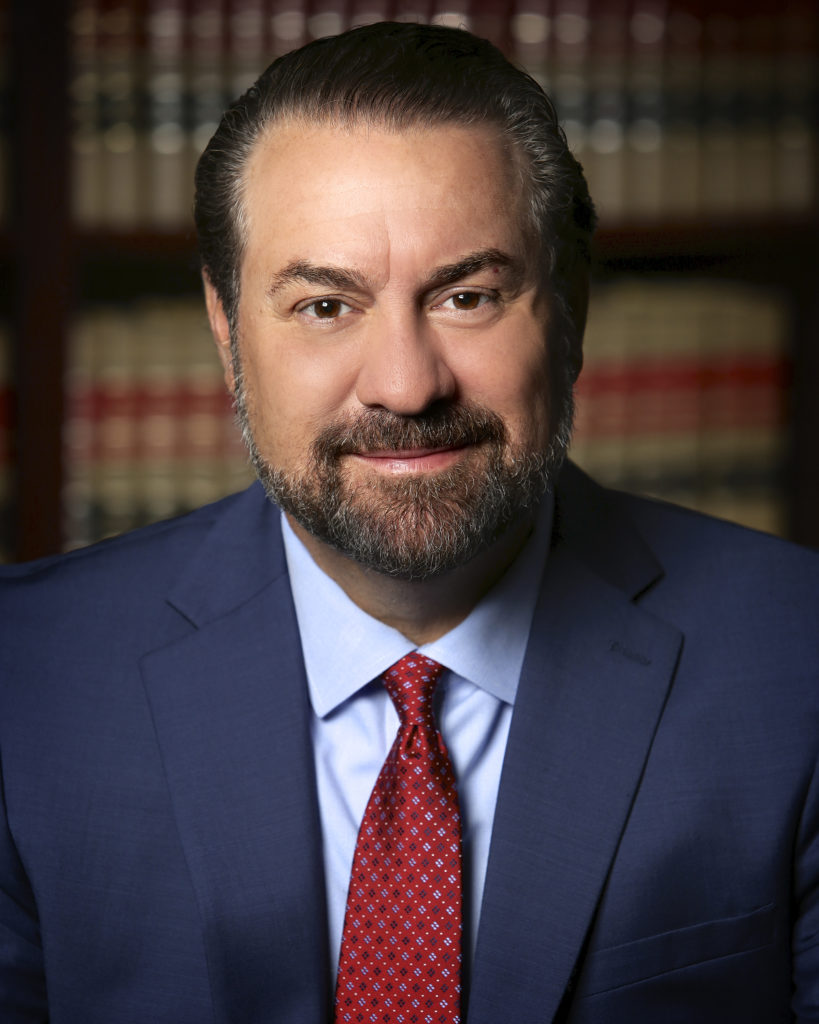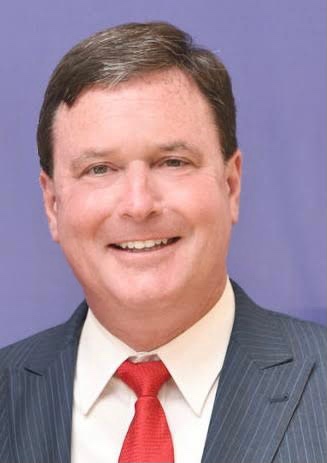The backlash could lead to lawsuits against public pension fund managers who favor ESG efforts.

Mark Brnovich
A major Republican backlash is underway in at least 24 U.S. states against public pension fund managers making investment decisions based upon environmental, social, and governance (ESG) concerns and principles.
Those leading the backlash say that when the ESG filter is applied to investment decisions, it leads to portfolio losses, which harm pensioners. Non-ESG investments are superior because they yield higher returns, according to the anti-ESG camp.
Other backlash supporters are saying that this effort could ultimately lead to new legal challenges with fund managers and related personnel being sued for defying the emerging anti-ESG policies.
However, there has been a backlash to the backlash in the form of a letter from an organization known as the Long-Term, a “501(c)(3) public charity that supports state, city, county, and tribal treasurers.”
The letter, dated September 14, is signed by 13 state treasurers and the comptroller for New York City.
“Several states in our country have started blacklisting financial firms that don’t agree with their political views. West Virginia, Idaho, Oklahoma, Texas, and Florida have created new policies and laws that restrict who they will do business with, reducing competition and restricting access to many high-quality managers. This strategy has real costs that ultimately impact their taxpayers,” according to the letter. (More about the letter is featured in the Minding the Gap blog found here: https://bit.ly/3xwjov3 .)
The backlash had an inauspicious start this past April when the American Legislative Exchange Council (ALEC), a group of state legislators proposed a new framework for state pensions that would discourage ESG in favor of “fiduciary rules to protect pensioners from politically driven investment strategies.”
Then, in August, Mark Brnovich, the Attorney General for Arizona, reported that he had created “a coalition of 19 states that sent a letter to BlackRock Inc., calling out its practices of putting leftist politics above investors’ interests and returns.”
 FTF News reached out to BlackRock officials for comment but they never responded. However, Dalia Blass, senior managing director, and head of external affairs at BlackRock, last month issued a letter in response to the Brnovich coalition.
FTF News reached out to BlackRock officials for comment but they never responded. However, Dalia Blass, senior managing director, and head of external affairs at BlackRock, last month issued a letter in response to the Brnovich coalition.
“Your letter makes several inaccurate statements about BlackRock’s motive for participating in various ESG-related initiatives. … Our participation in these initiatives is entirely consistent with our fiduciary obligations,” Blass says in the Aug. 4 letter.
BlackRock offers “investment products that … allow clients to gain broad market exposure, including to energy companies, and to make energy-specific investments,” Blass says.
“Your letter implies BlackRock has full discretion over where and how public pension fund investments and votes are directed. That is not the case. As a fiduciary, we are bound to adhere to our clients’ investment guidelines and objectives, including those specified by the pension funds in your states,” Blass adds.
Regardless of BlackRock’s response, other states have followed in Arizona’s footsteps.

Todd Rokita
On September 1, Todd Rokita, the Attorney General of Indiana, said in a letter to the Indiana Senate that state law prohibits the board of the Indiana Public Retirement System (INPRS) “or its contracted investment managers from choosing investments or investment strategies based on ESG considerations … For the same reasons, the board cannot exercise any rights appurtenant to its investment, such as proxy voting rights, based on ESG considerations nor can it retain investment advisors that make investments, set investment strategies, or exercise voting rights by proxy appurtenant to investments based on ESG considerations.”
Losing no time in Louisiana, Jeff Landry, Attorney General for the Pelican State, issued a guidance on August 30 that warns against “the possible adverse impact on state pension funds” of ESG-based decisions.
Firms operating as registered investment advisors (RIAs) and using ESG factors without full disclosure “are likely in violation of their fiduciary duties imposed by Louisiana law. In Louisiana, those investor-clients include entities such as the Louisiana Treasury and Louisiana State Retirement Boards … including the Louisiana State Employees Retirement System (LASERS),” Landry says.
Prior to Louisiana, Ron DeSantis, the governor of Florida, and fellow trustees of the State Board of Administration (SBA) on August 23 “passed a resolution directing the state of Florida’s fund managers to invest state funds in a manner that prioritizes the highest return on investment for Florida’s taxpayers and retirees without considering the … (ESG) movement.”

Glenn Hegar
The next day, in a state that prides itself on going big, Texas took things a step further when Glenn Hegar, state comptroller, released a list of financial services firms that he says boycott energy companies via ESG. Hegar’s list includes BlackRock, BNP Paribas, Credit Suisse Group, Danske Bank, Jupiter Fund Management, Nordea Bank, Schroders, Svenska Handelsbanken, Swedbank, and UBS Group.
Publicly traded financial services firms, banks, and investment companies “are subject to the divestment provisions” of Texas law, Hegar notes. “Additionally, comptroller staff conducted research on individual investment funds, generating a list of nearly 350 funds that are subject to the same provisions as the companies.”
Not surprisingly, there has been pushback to the backlash.
FTF News reached out to Hegar and all of the firms on Hegar’s list. The only response was from Schroders.
“We strongly disagree with the State of Texas’ decision. Schroders does not boycott fossil fuels and, in fact, has $19 billion allocated to companies active in the energy sector globally,” according to the Schroders representative.
“We are committed to maximizing returns for clients by actively engaging with these companies. We help them to navigate and adapt to the opportunities and risks their businesses face amid the energy transition needed to mitigate climate change. This process of engagement is driven by data and the deep analysis we undertake to assess and manage potential investment risk,” the spokesperson adds. “We will continue to engage with our clients, peers and other stakeholders to seek to ensure that our investment approach and the drivers behind it are properly understood.”
Late last month, the Investment Company Institute (ICI) issued a statement also in response to Hegar.
“The Texas Comptroller’s announcement … a step toward having Texas state agencies boycott hundreds of investment funds, will only harm the ability of Texas police, firefighters, teachers, and other state civil servants to save for a secure financial future,” according to the ICI.
 “Texas state pension managers have a fiduciary duty to act in the best interest of state employees. However, a state-mandated boycott of certain funds could restrict their ability to choose from the full range of available investments on behalf of Texas state retirees. This decision impacts billions of dollars in retirement savings for many Texans. … The merits of the named ESG-related funds, which operate in a competitive marketplace, should be evaluated primarily by their ability to meet the long-term goals of Texas state retirees. … State pension fund managers must be able to consider a broad range of investments that most appropriately support the needs of these Texas savers, free from politics,” according to the ICI statement.
“Texas state pension managers have a fiduciary duty to act in the best interest of state employees. However, a state-mandated boycott of certain funds could restrict their ability to choose from the full range of available investments on behalf of Texas state retirees. This decision impacts billions of dollars in retirement savings for many Texans. … The merits of the named ESG-related funds, which operate in a competitive marketplace, should be evaluated primarily by their ability to meet the long-term goals of Texas state retirees. … State pension fund managers must be able to consider a broad range of investments that most appropriately support the needs of these Texas savers, free from politics,” according to the ICI statement.
The next step in the ESG backlash could be a new kind of liability for state pension fund personnel, according to an opinion piece in The Wall Street Journal, written by William Barr, the former U.S. attorney general, and Jed Rubenfeld, a Yale Law School professor.
In the Sept. 6 piece, “ESG Can’t Square With Fiduciary Duty,” the decisions by Louisiana and Indiana “suggest that state pension-fund board members, investment staff, and investment advisers may be liable if they continue allocating funds to ESG-promoting asset managers such as BlackRock,” argue Barr and Rubenfeld.
“Although the letters are tailored to Louisiana and Indiana law, the principles they invoke are part of the common and statutory laws of almost every state. Under those principles, social-impact investing has long been viewed as legally problematic,” they say.

Tanya Seajay
Yet, while the ESG backlash may gain more ground, it may not be enough to stop the ESG phenomenon.
“What is apparent to me, is that Wall Street must be making an impact on this industry if an entire state is willing to take a stand using public retirement funds,” says Tanya Seajay, CEO at Orenda, a SIX company that offers ESG and sustainability scores for companies included in an investment portfolio.
“And I expect that the ESG backlash will be replicated by like-minded states, countries, and firms for a short time,” Seajay says. “But they are not the trend. Firms are being mandated globally to move away from financing fossil fuels and that means wealth is shifting toward renewable energy. In correspondence with this shift, the values and expectations of society are for an ESG-conscious future. There is a snowball effect, with no turning back.”
Need a Reprint?
[…] Since that article, high profile conservatives have spoken out against ESG investing and many Republican-majority states have forbidden ESG investing in public pension funds. […]